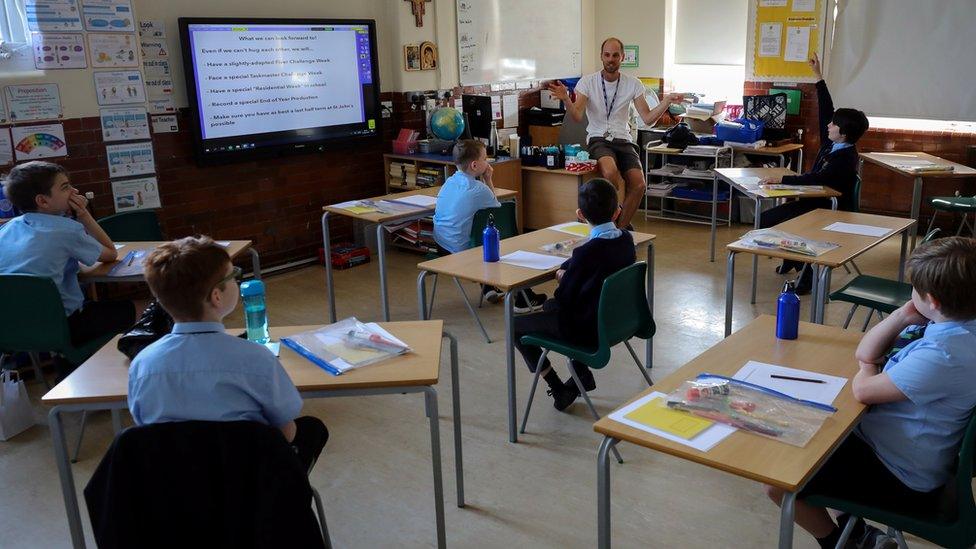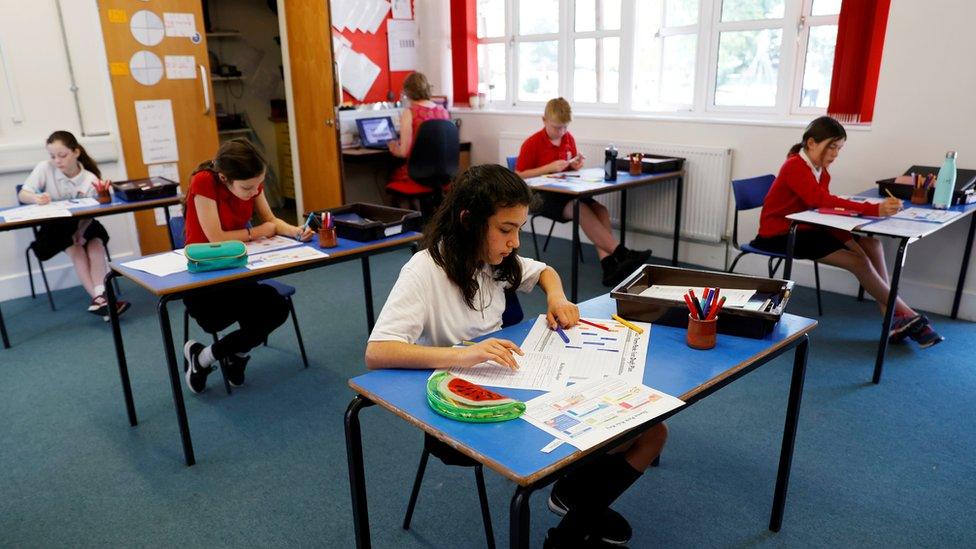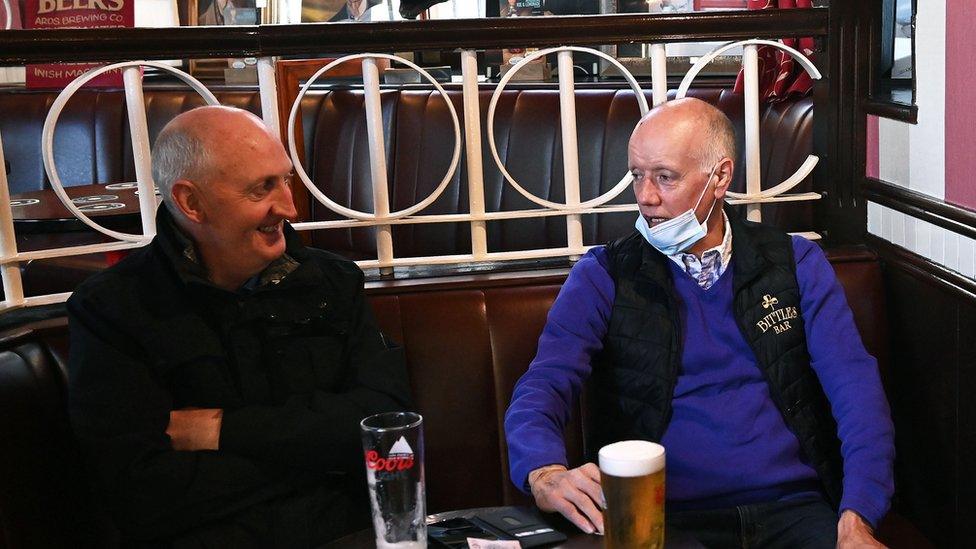Covid-19: NI pupils in contact with coronavirus case can stay in class
- Published

The new guidance on close contacts is for those who are asymptomatic
School pupils will not have to self-isolate after coming into contact with a coronavirus case if they have recently tested positive for the virus themselves, according to new guidance.
It has been issued by the Public Health Agency (PHA) ahead of the school term.
As long as a pupil is well they can stay in school but must avoid visiting care homes and hospitals.
Staff who are close contacts of a coronavirus case can keep working in school if they are fully vaccinated.
However, unvaccinated staff have to self-isolate for 10 days.
The PHA guidance for schools states: "Pupils who are close contacts but have already had a positive test result in the previous 90 days and have no new symptoms do not need to arrange a polymerase chain reaction (PCR) test or self-isolate.
"This is because it is possible for PCR tests to remain positive for some time after COVID-19 infection due to residual virus fragments (which are not infectious)."
Fully-vaccinated staff who are close contacts can keep working but they are being advised to take PCR tests on day two and day eight after being identified.
Staff who are fully vaccinated and have had a positive test in the previous 90 days can continue to come into work without the need for a PCR test.
However, unvaccinated staff have to self-isolate.
If a school pupil is a close contact and has no symptoms but has not had a positive PCR test in the previous 90 days they are advised to self-isolate until they have taken a PCR test.
However if that test is negative they can return to school and do not have to self-isolate for 10 days.
They are advised, though, to take another PCR test on day eight.

The new guidance applies to students and staff
The new guidance for schools comes after the Stormont executive decided on 12 August to change self-isolation rules for close contacts.
People who are notified as close contacts no longer have to self-isolate if they have been fully vaccinated but are still advised to take a PCR Covid test on day two and eight of the process.
The new guidance on close contacts is for those who are asymptomatic.
The PHA said that anyone with symptoms of coronavirus should immediately self-isolate and book a PCR test.
'Based on trust'
The guidance is different for pupils under four years old in nursery schools.
Their parents should be told that they are a close contact and are being advised to arrange a PCR test for them but they can continue to go to pre-school or nursery.
"In this age group testing is voluntary and provided the child has no symptoms they do not need to self-isolate and can attend nursery even if they do not take a test," said the PHA in its guidance.
But the PHA also said that the school testing system "works on trust".
"This advice is based on Department of Health policy guidance and is not in regulations," the guidance said.
"The PHA will know of positive PCR tests but not those that are negative.
"Principals may not know whether pupils have or have not taken the recommended PCR test, and they may not know the vaccination status of their staff.
"If there is strong reason to believe that compliance with advice to get tested will not be taken, or staff vaccination status is unknown, then the 10-day self-isolation period should apply."
School principals will still have to identify close contacts and carry out tracing in the event of a positive case in school.
The new guidance is an attempt to stop high numbers of staff and pupils being out of school for 10 days if they are identified as close contacts.
In England just before the end of the 2020-21 school year, almost a quarter of pupils were out of school.
Schools in Northern Ireland have been sent detailed guidance and flowcharts on the self-isolation arrangements for the new school year.
Related topics
- Published8 October 2021
